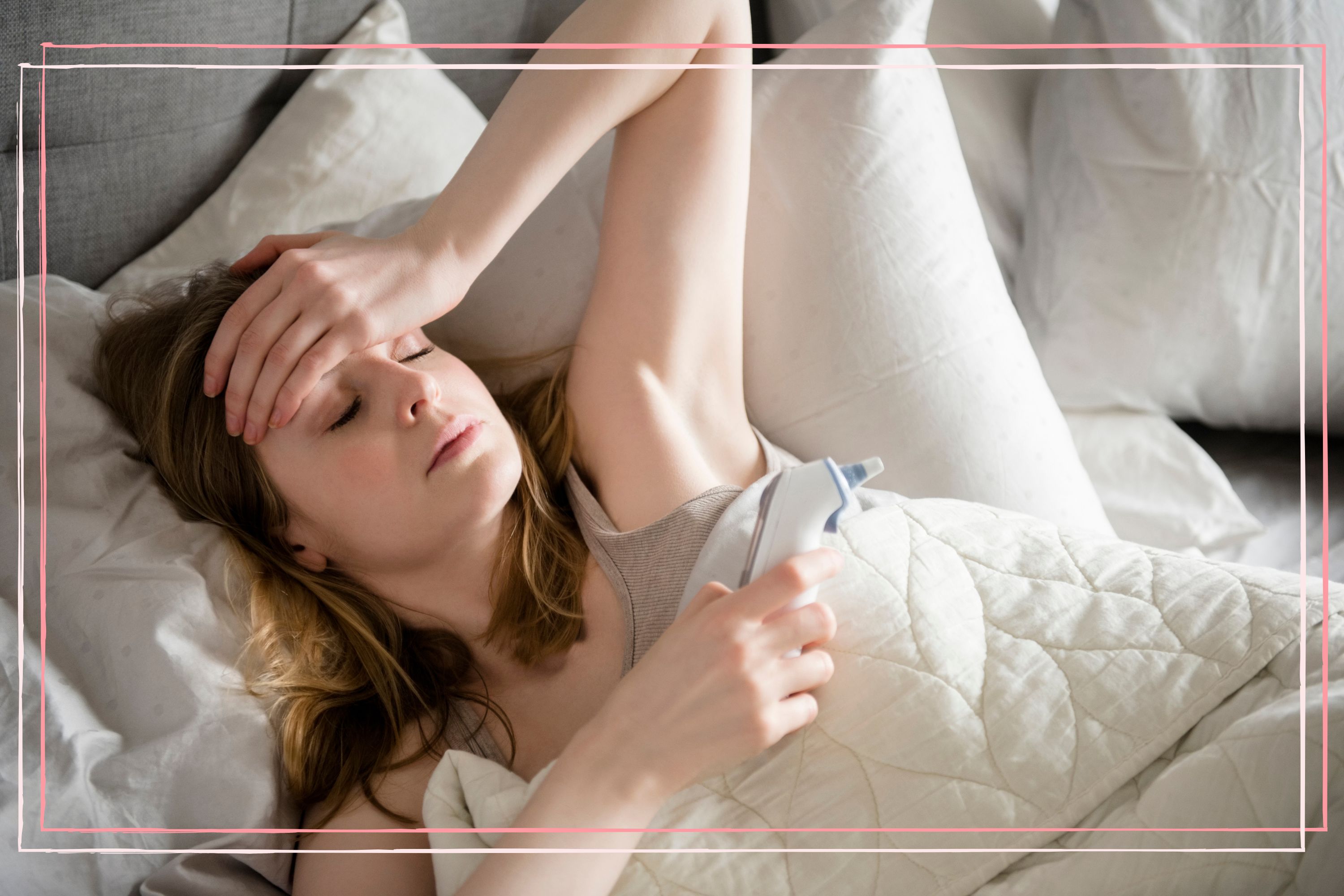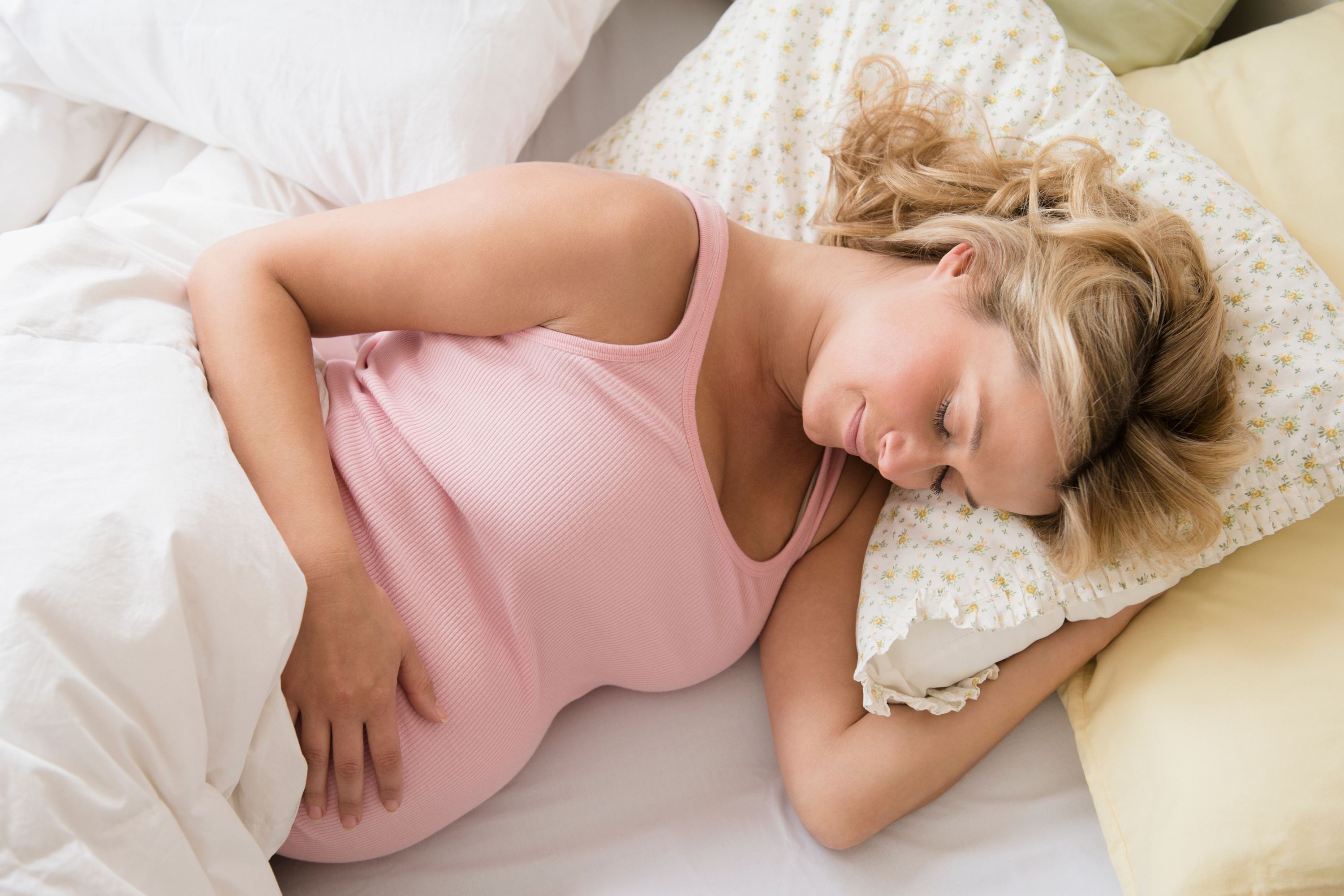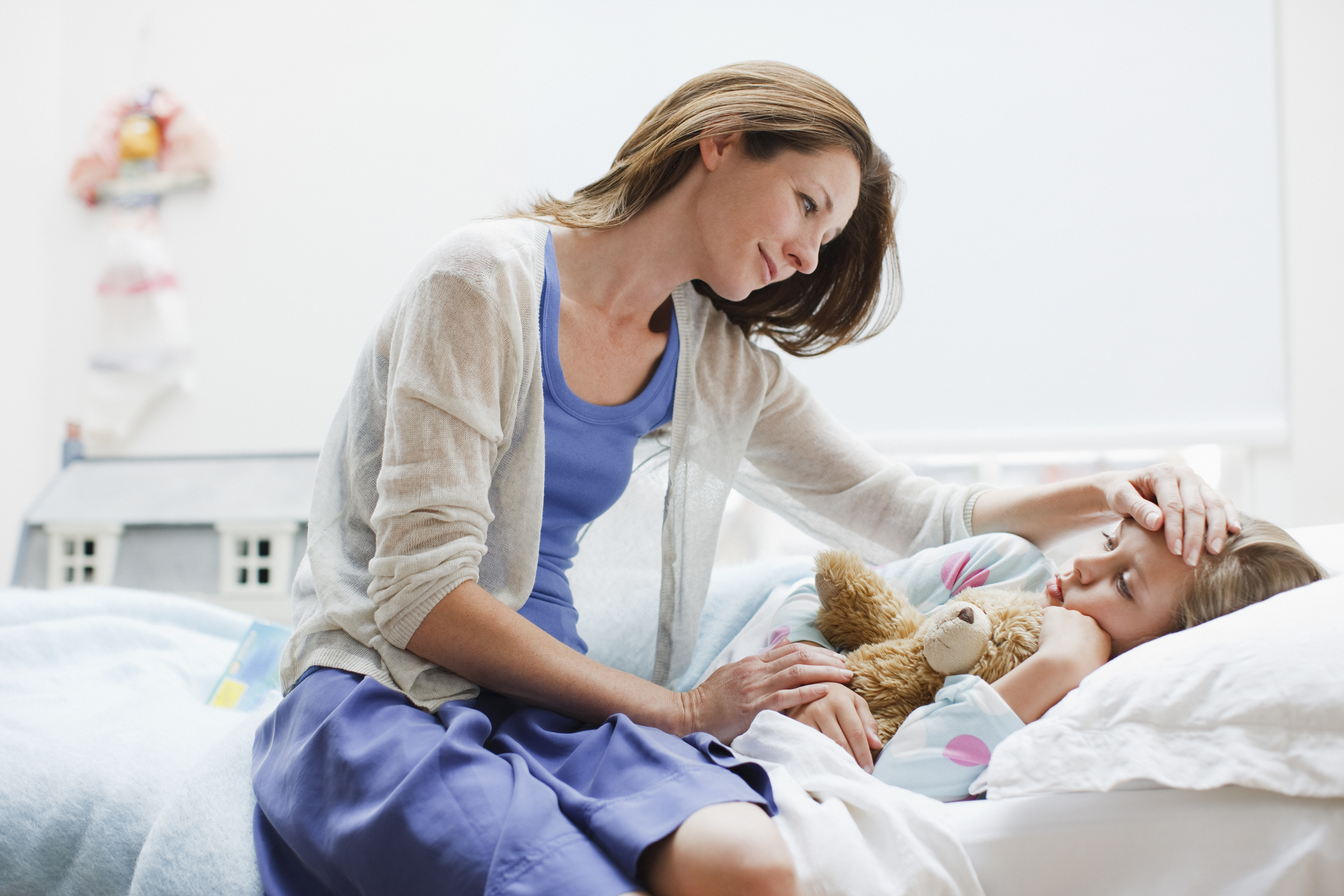
If you find yourself battling to get comfortable on warmer nights, then you've probably wondered why do I sweat at night and how can I stop night sweats?
There are many reasons you might be experiencing night sweats, and one of which is simply that it's a hot evening - in which case all you really need to know is how to get to sleep in the heat and how to cool down fast.
But if you often find yourself lying awake at night drenched in sweat thinking 'I can't sleep!' we've looked into some of the reasons why you find yourself sweating at night, as well as the top tips to prevent night sweats. It's worth bearing in mind however that sometimes there can be a health issue causing night sweats, so it's always a good idea to get it checked out.
Why do I sweat at night?
Night sweats happen for a variety of reasons that can differ between women, men and children. It's important to note that night sweats don't just mean sweating at night - the NHS defines night sweats as sweating so much that your night clothes are soaked through, even though where you're sleeping may feel cool.
There are plenty of explanations for night sweats that don't suggest a health issue. For example, if you sleep on a memory foam mattress you may be more prone to sweating at night, as the material can lock heat which may cause you to overheat. Synthetic or satin sheets can also cause more sweating, so it's best to opt for lightweight, breathable fabrics, such as linen sheets.
Pure Linen Bedding Set - from £75 | M&S
Available in five different colours and in sizes ranging from single to super king, this bedding set is made from linen - a naturally breathable fibre and the weave helps to evaporate moisture and allow heat to escape, perfect for keeping you cool while you sleep.
Causes of night sweats in women
- Pregnancy
- Menopause
- Anxiety
- Medicines such as antidepressants, steroids and painkillers
- Alcohol or drug use - you may sweat more after a night of drinking
- Hyperhidrosis - a common and normal condition where you sweat more than is normal
- Gastroesophageal reflux disease (GERD)
For women, sometimes hormonal changes can make you sweat more at night.
Many women experience hot flushes during the menopause for example, which can cause temperature changes that can lead to excessive sweating. They can happen throughout the day and night, so if you are of menopausal age (45+), it could be a reason for sweating a lot at night.
Parenting advice, hot topics, best buys and family finance tips delivered straight to your inbox.
Vicki Whiteley, Director of Aesthetics at The Whiteley Clinic, said, “Most women will experience hot flushes when going through the menopause. They're often described as a sudden feeling of overwhelming heat that seems to come from nowhere and spreads throughout the body. Women may also experience sweating, palpitations, and flushing of the face."
Pregnancy can also be a cause for night sweats. During pregnancy, your hormones of course are changing all the time. When your estrogen drops during pregnancy, your body often believes you are too hot, and then instructs your body to start sweating to help you cool down. This type of sweating generally occurs at night.

Vicki explained, "Many women experience increased sweating during pregnancy, as hormone levels and blood flow tend to increase, which causes the body temperature to rise. As a result, the body then sweats more to cool down. Some women may also experience an increase in sweating after pregnancy as the body releases excess fluid and hormone levels return to normal.”
In addition, if you're experiencing night sweats after giving birth via a Caesarean section, or after giving birth in general, rest assured that it is totally normal.
Post-partum, your body is going through a lot of changes and is doing its best to recover. This can often mean that your body has low levels of estrogen, which can cause night sweats, as your body begins to adapt to no longer being pregnant - and all the physical changes that come with having a baby!
Causes of night sweats in men
- Anxiety
- Medicines such as antidepressants, steroids and painkillers
- Alcohol or drug use - you may sweat more after a night of drinking
- Hyperhidrosis - a common and normal condition where you may sweat more than is normal
- Gastroesophageal reflux disease (GERD)
Many of the potential causes of night sweats in men can also causes excessive sweating at night for women too. Things like having a hot drink before bed, sleep apnea and, more rarely, certain cancers and neurological conditions can cause night sweats too.
If you're concerned that your night sweats could be a result of a health issue, you should book an appointment with your GP.
Causes of night sweats in children
Like adults, they are a variety of reasons why children might sweat more at night time.
Most of the time this is down to some very normal causes, such as a room that's too warm, blankets or bedding that are too heavy for the weather, non-breathable night clothes, hormone changes as they get older, or perhaps because of their genetics - they could well simply take after you if you sweat a fair bit at bedtime too.
Sometimes it may be due to more serious issues such as allergies, asthma, lung issues, and in rare cases, some childhood cancers. However, this much less likely, and would normally come accompanied with other worrying symptoms.

When to see a doctor about night sweats
If your excessive night sweating is not helped by wearing lighter night clothes, changing your bedding, opening windows or avoiding triggers (such as hot drinks), or if your sweating at night leaves your pyjamas and your bed soaked through, it's a good idea to seek professional help with the issue.
The NHS advises seeking help if:
- Night sweat are occurring regularly, or they are waking you up
- You are having night sweats and losing weight too, without meaning to
- You have night sweats and a cough, diarrhoea, and/or a high temperature
- You are worried for any reason by your night sweats
- You feel generally tired and/or unwell
How to stop night sweats
- Switch your bedding to more cooling materials
- Lower the temperature in your room before bed
- Exercise regularly
- Practice relaxation techniques
- Avoid alcohol, caffeine and spicy or fatty foods
- Try not to eat a meal for 2-3 hours before bed
- Try hormone therapy
- If you are on medication, you may want to ask your doctor to adjust the dose
Related features:
- How much deep sleep do you need and how to get more of it
- Why do I keep having nightmares?
- How to stop snoring
- Dream meanings explained
- What does it mean when you dream about someone?
Video of the Week

After graduating from the University of Gloucestershire in June 2002 with a Degree in Community Studies with Combined Studies (Sociology and Psychology), Victoria took a temporary position at the Royal Surrey County Hospital as a Health Care Assistant in the day surgery operating theatre.
She returned to College in 2004 to obtain Diplomas in Anatomy and Physiology and set up a medical aesthetics clinic, Absolute Aesthetics which became a division of the The Whiteley Clinic.
Amy is Senior Digital Writer across Woman & Home, GoodTo and Woman, writing about everything from celebrity news to health, fashion and beauty features. When she isn't obsessing over the latest dress drop from Marks & Spencer, you'll most likely find Amy out running, or with a cup of tea in hand ready to dive into a gripping new Netflix series.
